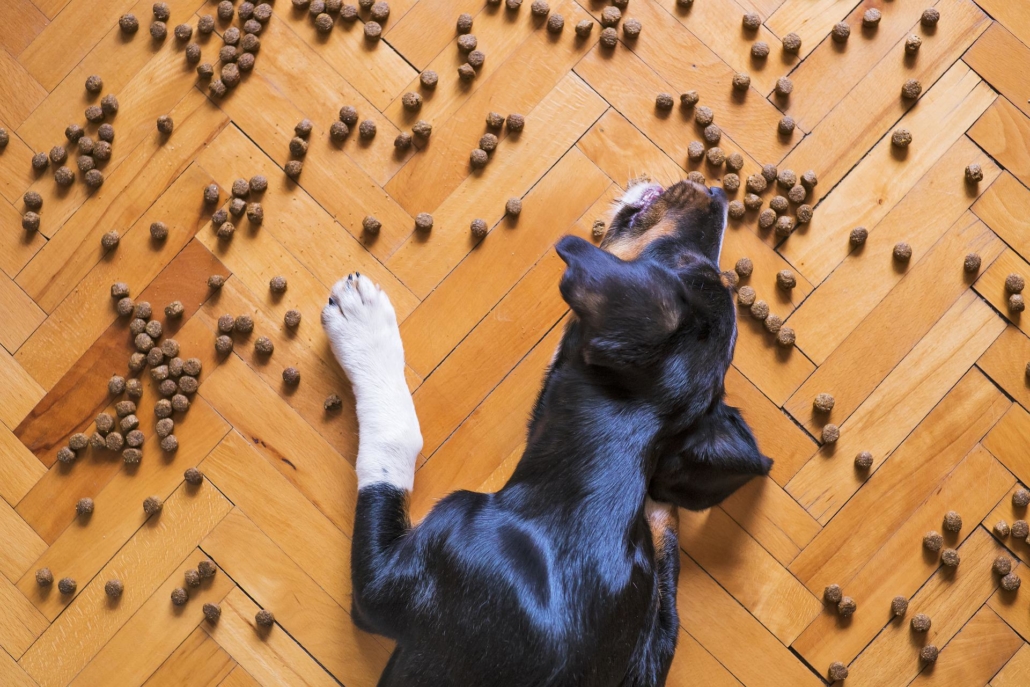Dog Obesity: How to Combat America’s #1 Dog Health Problem
Have you noticed your dog is having a little trouble running around lately?
Does your dog seem to be sleeping more, or less interested in playing for long periods of time?
Most importantly, have you noticed that their waist line is growing wider?

Dangers of Your Dog Being Overweight
There are multiple health problems that result from your dog being overweight.
Some are not so serious:
- Less desire to exercise or play
- Inability to tolerate heat
- Desire to sleep more than needed
But, even these minor problems are tied to much more serious issues for your pup:
- Trouble breathing
- Hypertension – high blood pressure
- Liver Disease (fatty liver, liver failure – both of which turn fatal quickly)
- Joint and bone pain
- Diabetes
But It’s Just a Few Extra Lbs, What’s the Big Deal?
Keep in mind that if the average, 175-lb person gains 3 – 5lbs, it won’t make a big difference in their appearance or health.
But, a gain of a few lbs in a 20lb dog means that they’ve increase their bodyweight by nearly 20%.
This would translate to a 35lb weight gain in that same 175lb human. You can bet they’d notice an extra 35lbs around their middle – both in appearance and health.
So, even a few extra pounds can make your dog feel tired, sick, and unhealthy.
How to Help Your Dog Lose Weight Safely
Luckily, there are safe, simply ways to help your dog lose weight.
Step one is cleaning up their diet.
Now, that doesn’t mean you have to buy diet food, or drastically reduce the amount they’re eating. If you are way-overfeeding, you will have to reduce the amount. But, if your dog eats within their suggested feeding range, here’s what you can do:
- Cut back on treats. Until you get some weight off of them, keep treats to a minimum. For sedentary dogs, a few treats a day can add up to significant weight gain over time. Once your pup is in-shape, you can add healthy treats back in slowly.
- Know your dog’s healthy weight: It’s best to get a professional’s help as you assess your pet’s accurate weight, body condition, and diet, determine if the dog would benefit from a weight-loss plan and set a target weight to work toward.
- Keep your dog active. Just like humans, exercise is crucial when it comes to helping your overweight dog get healthy. Increasing your dog’s activity helps burn off energy (and calories consumed).
- Make sure you’re giving your dog the healthiest, most nutrient dense food available.
If you can’t find human-quality ingredients, make their food yourself. If you don’t have time to cook, or you have multiple dogs, then consider investing in human-grade, high-quality, custom ready-to-eat dog foods. Click Here to learn more.
Looking for weekly insights and tips to keep your best friend happy & healthy?
Look no further and sign up for our newsletter right away:



